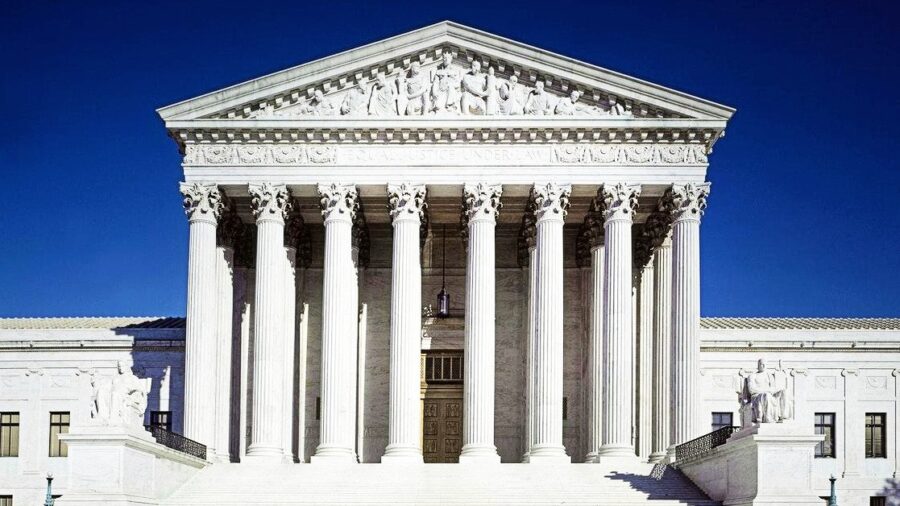The Supreme Court Just Made It A Lot Harder To Make Parodies
The Supreme Court ruled in favor of Jack Daniel's in a parody case against a company making dog toys.

The latest ruling from the Supreme Court of the United States is no joke. As covered by The Hollywood Reporter, the Supreme Court ruled in favor of Jack Daniel’s, the Tennessee whisky company, in a case against VIP Products, which makes a chewable dog toy designed to resemble a bottle of the popular whiskey. It is labeled ‘Bad Spaniels’.
In addition to its distinct logo, bottles of Jack Daniel’s detail its whiskey as ‘Old No. 7 Brand Tennessee Sour Mash Whiskey’. ‘Bad Spaniels’ is described in parallel as ‘The Old No. 2 On Your Tennessee Carpet.’
The seemingly harmless joke was not taken lightly by Jack Daniel’s, but the issue did not immediately go to the Supreme Court. Jack Daniel’s requested that VIP Products stop making its Bad Spaniels toys. VIP countered that it was within its rights to keep going, and the case went to court.
VIP requested a legal declaration that its Bad Spaniels toy did not infringe upon or dilute the Jack Daniel’s trademark. Jack Daniel’s countered that the toy was a trademark dilution because it caused consumer confusion about where the product came from and associated the delicious whiskey with not-so-delicious dog excrement. From there, the case was on its path to the Supreme Court.
To make a choice on such a matter, the courts often fall back on the Rogers test. The precedent established in 1989 encourages balance between creative expression protected by the First Amendment and a company’s right to trademark clarity. If a company muddies the identity or otherwise dilutes the effectiveness or origin of another company’s trademark or products, the use would not be protected.

The case was carried back and forth between the 9th Circuit and the Arizona Federal Court. The circuit court ruled that Bad Spaniels was a clear parody that can not be proven to cause brand confusion or trademark dilution and should therefore be protected. The Supreme Court saw the issue differently.
The circuit court found that Jack Daniel’s could not substantially satisfy the Rogers test; trademark dilution could not be proven. At the federal level, the Supreme Court found that VIP Products had committed the “cardinal sin” of trademark law by confusing the source of the goods and undermining the Jack Daniel’s brand with crude messaging.
The Supreme Court cited a number of past cases to justify its decision, pointing to similar instances in which parody products did not hold up in court. Fair-use exclusions were not enough to protect Bad Spaniels because it muddles the source of the product and therefore undermines the product it is parodying.
In the interest of keeping the source of goods clear to consumers, the parody product was struck down in court. The case is not the first of its kind, but it does reinforce the precedents limiting fair-use that were made in the interest of trademark protection.
Opinions from the Supreme Court cautioned that the Rogers test ought to be applied with great care, noting that an over-reliance on survey data when determining trademark dilution is a dangerous practice. Copyright and trademark law is a complex and subjective territory that is challenging to balance with the First Amendment.
Bad Spaniels delivered the punchline, but in court, Jack Daniel’s had the last laugh. Time will tell how the ruling affects parodies of all kinds in the future.












